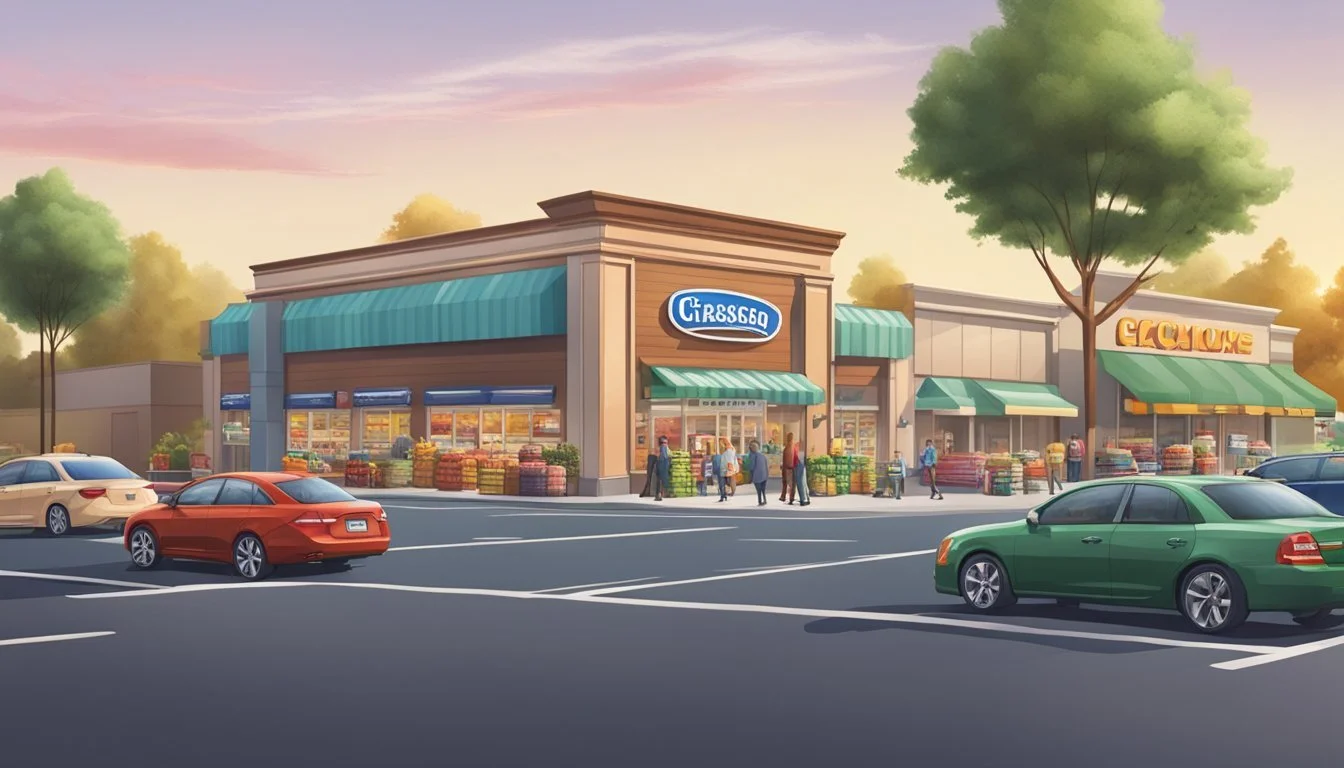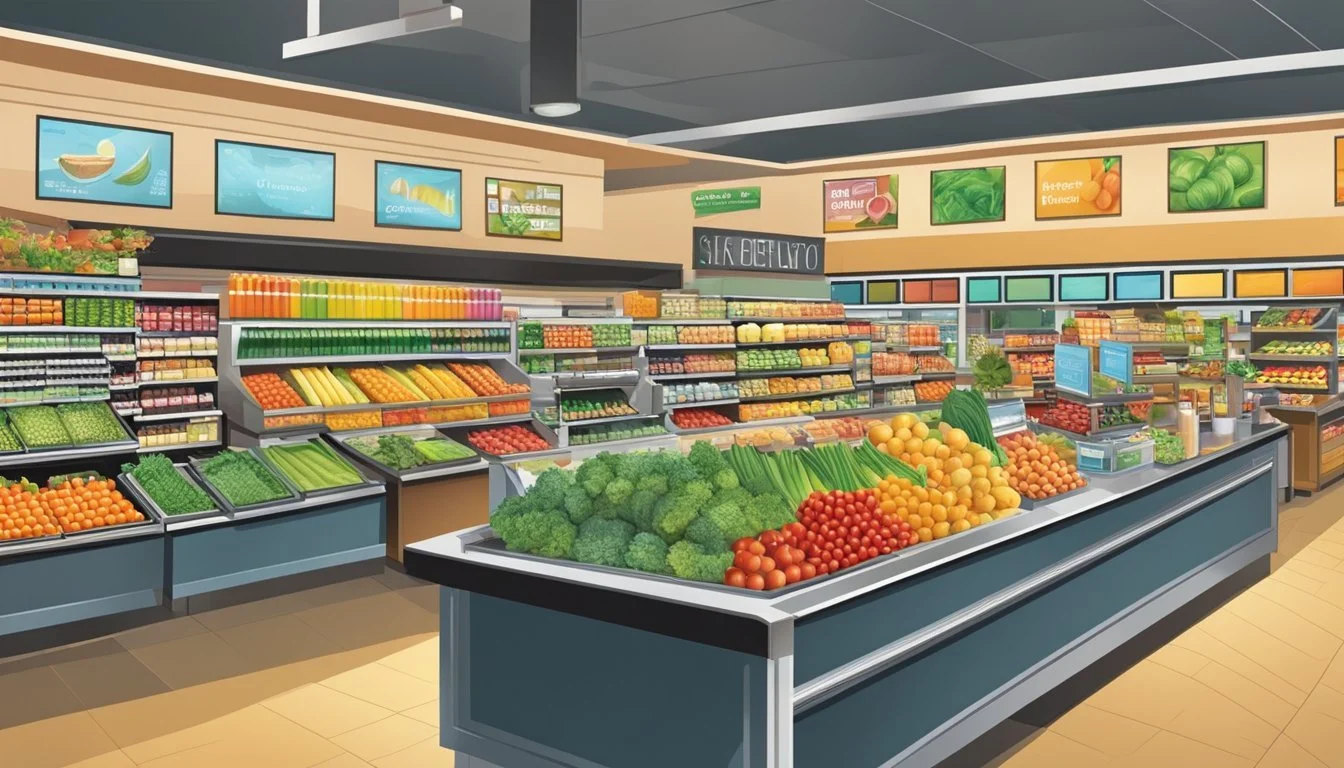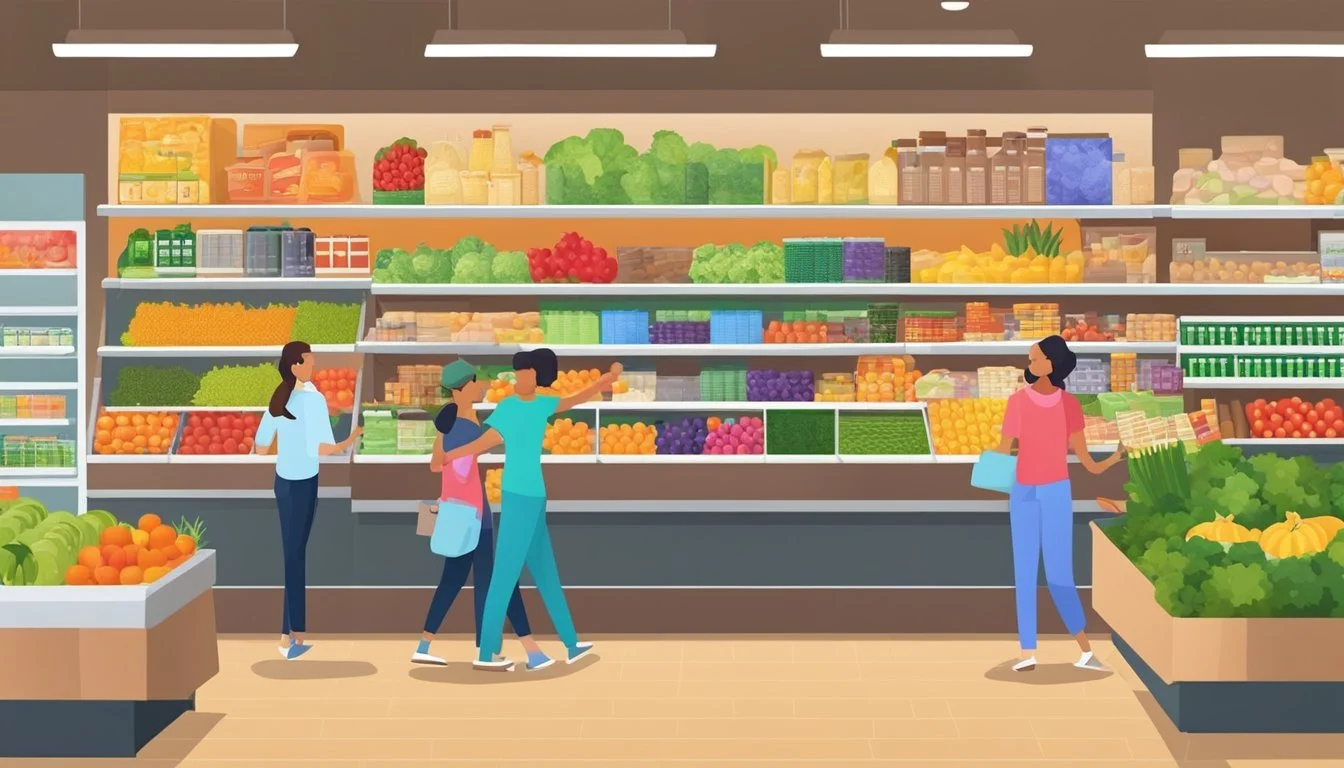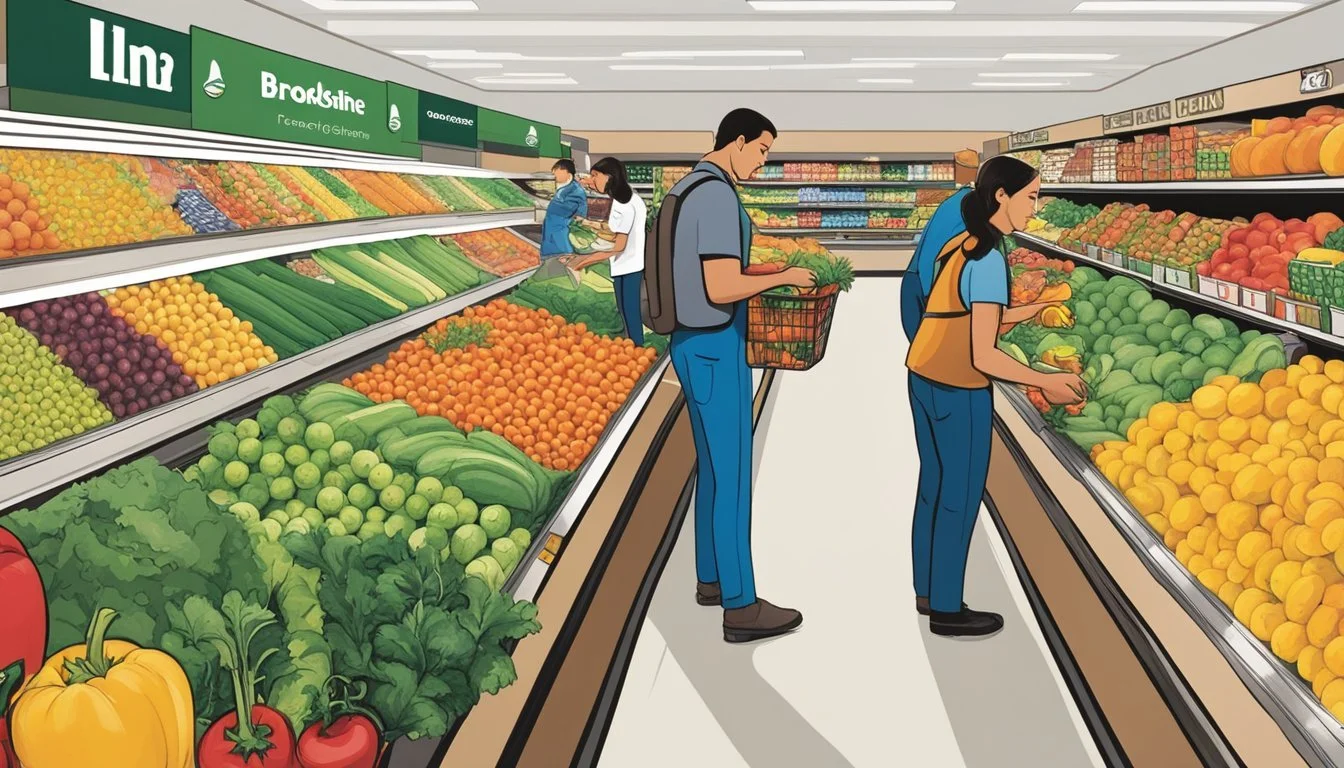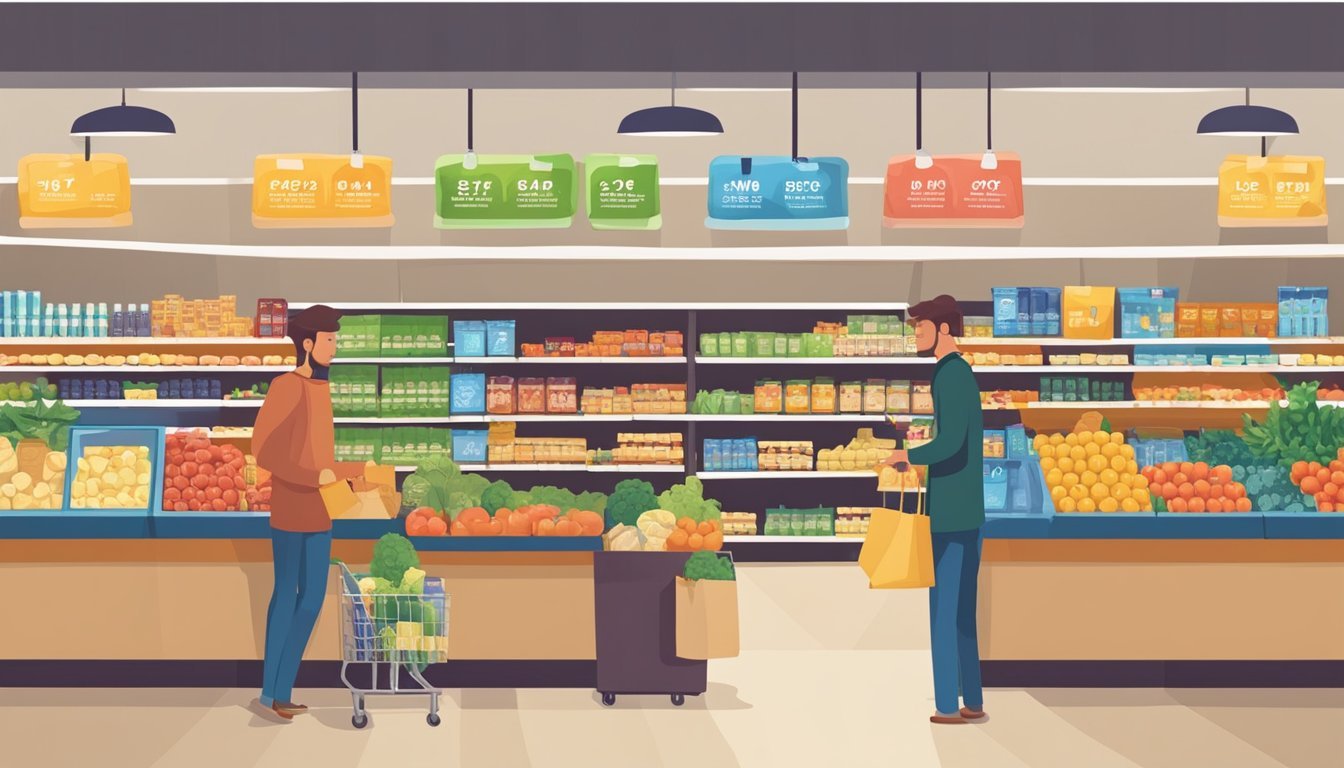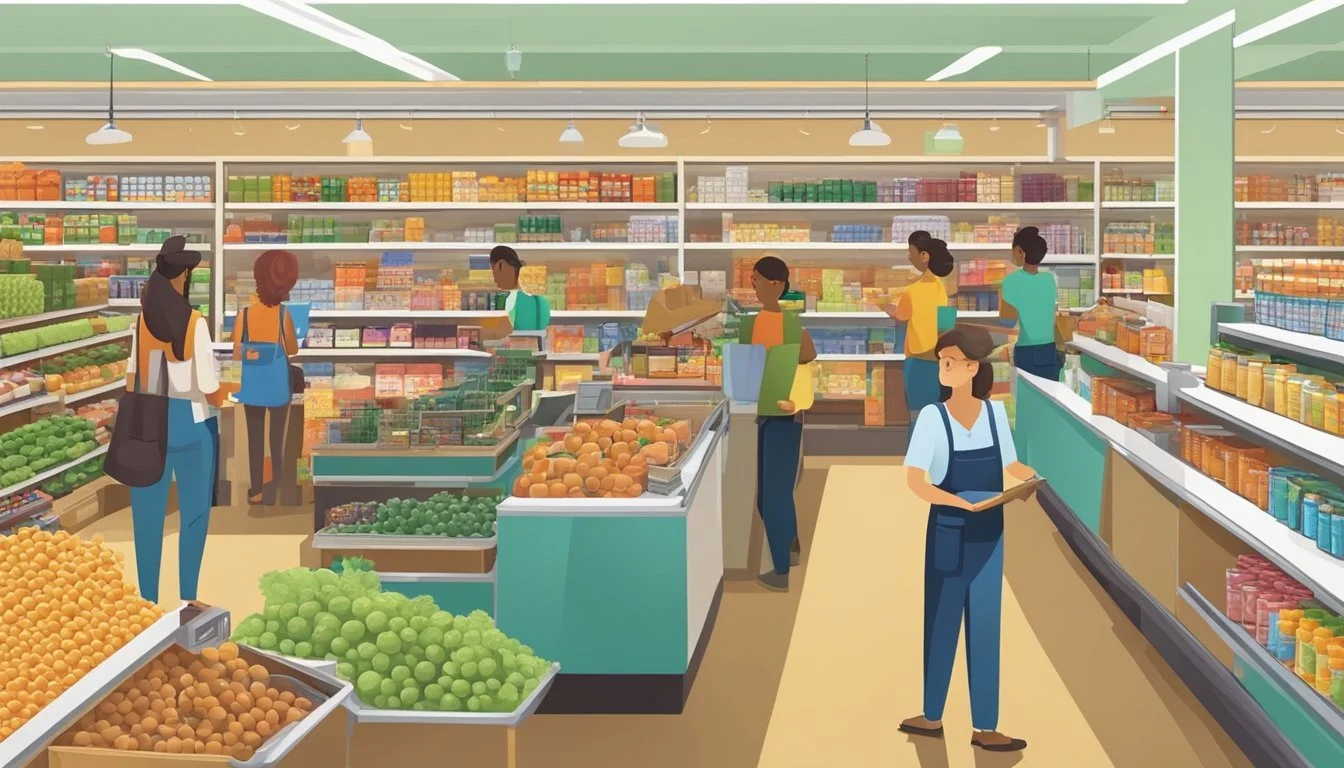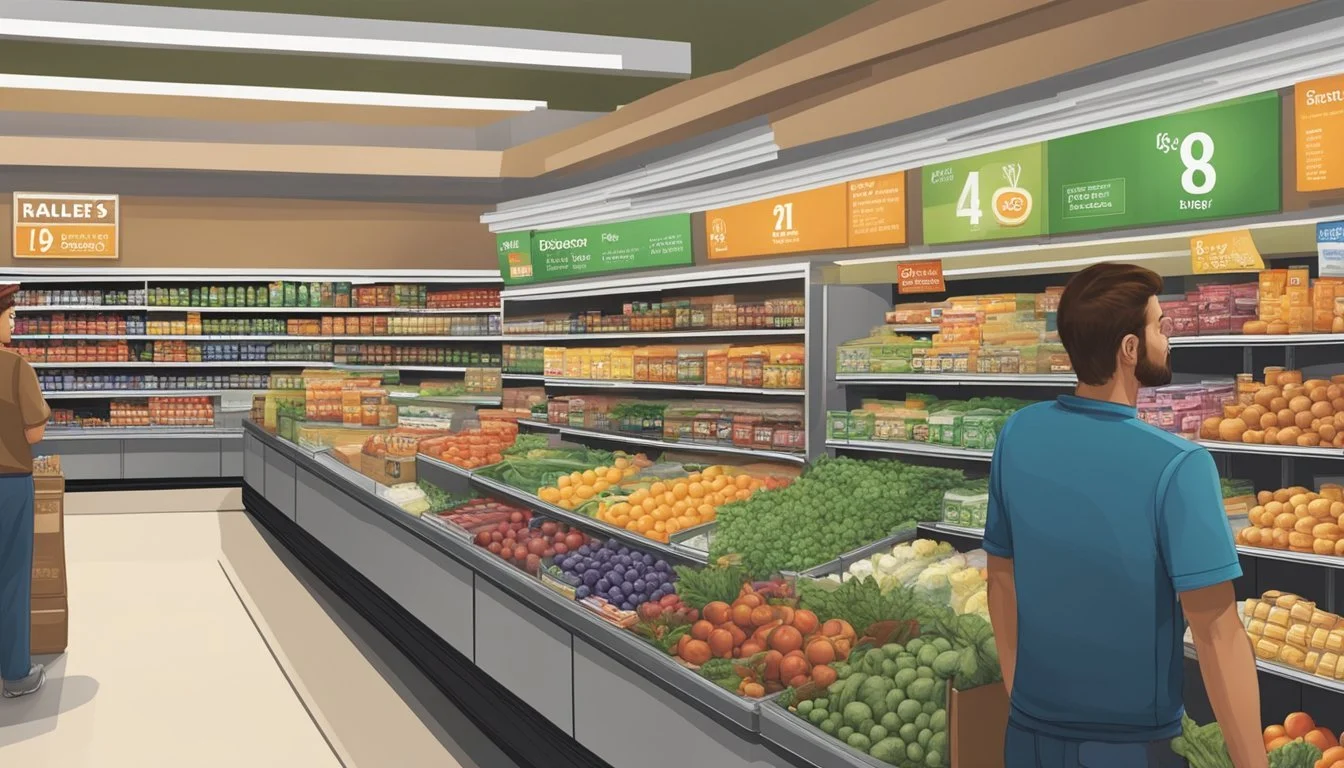Brookshire Grocery Company vs Raley's
A Comprehensive Comparison of Regional Supermarket Chains
Grocery shopping is a regular necessity for most households, and choosing the right store can impact both your budget and overall satisfaction. Brookshire Grocery Company and Raley's are two regional supermarket chains that serve different parts of the United States. Both retailers offer a range of products and services, but Raley's tends to receive higher customer satisfaction ratings for its quality and customer service.
Brookshire Grocery Company operates primarily in Texas, Louisiana, and Arkansas, while Raley's has a presence in California and Nevada. Each chain has its own unique offerings and strengths. Brookshire's is known for its competitive pricing and community involvement, while Raley's has built a reputation for its fresh produce and emphasis on health-conscious options.
When comparing these two grocery stores, factors such as product selection, pricing, store atmosphere, and customer service come into play. While personal preferences vary, understanding the key differences between Brookshire Grocery Company and Raley's can help shoppers make informed decisions about where to purchase their groceries.
History and Background
Brookshire Grocery Company and Raley's Supermarkets both began as family-owned businesses in the early 20th century. These grocery chains have grown significantly over the decades while maintaining their independent, family-operated status.
Brookshire Grocery Company Origins
Brookshire Grocery Company traces its roots to 1928 when Wood T. Brookshire and his five brothers opened a small store in Tyler, Texas. The 25 x 100-foot shop operated under the name Brookshire Brothers. Wood Brookshire aimed to build a local chain of grocery stores in east Texas.
The company expanded steadily over the years. By focusing on customer service and community involvement, Brookshire Grocery Company established a strong presence in Texas, Arkansas, and Louisiana. Today, it operates over 100 supermarkets across these states.
The Brookshire family continues to own and manage the business, maintaining its founding principles of quality products and friendly service.
Raley's Supermarkets Evolution
Thomas P. Raley founded Raley's in 1935 with a single store in Placerville, California. His innovative approach to grocery retail set the foundation for the company's growth.
Raley introduced concepts like drive-in markets and in-store pharmacies, which were revolutionary at the time. The business expanded gradually, adding new stores and acquiring other chains like Bel Air Markets.
Raley's remains a family-owned enterprise, headquartered in West Sacramento. It has become the dominant grocery chain in Northern California and Nevada. The company's commitment to quality and customer satisfaction has been key to its success over the past nine decades.
Geographic Footprint
Brookshire Grocery Company and Raley's operate in distinct regions of the United States, each with a strong presence in their respective markets. Both companies have pursued expansion strategies to grow their geographic reach in recent years.
Brookshire's Regional Presence
Brookshire Grocery Company maintains a significant footprint in the southern United States. The company operates approximately 180 stores across Texas, Louisiana, and Arkansas. In 2021, Brookshire expanded its reach by acquiring Reasor's, an Oklahoma-based chain with 17 locations. This move strengthened Brookshire's position in the region and added a new state to its operating area.
Brookshire's stores operate under several banners:
Brookshire's
Super 1 Foods
FRESH by Brookshire's
Spring Market
The company's headquarters are in Tyler, Texas, reflecting its strong roots in the Lone Star State.
Raley's Expansion in North America
Raley's, headquartered in Sacramento, California, has a robust presence in the western United States. The company operates over 120 stores across California and Nevada. In 2021, Raley's significantly expanded its footprint by acquiring Bashas' Family of Stores, a prominent Arizona-based chain.
This acquisition added several new banners to Raley's portfolio:
Bashas'
Food City
AJ's Fine Foods
The merger created a new western supermarket chain, extending Raley's reach into Arizona and strengthening its position in the competitive North American grocery market.
Raley's has also innovated within its existing territory, transforming an old store into an e-commerce fulfillment center to meet growing online demand.
Product Range and Quality
Brookshire Grocery Company and Raley's offer diverse product selections to meet customer needs. Both chains prioritize quality across departments, with some key differences in their offerings and specialties.
Product Diversity and Exclusives
Brookshire Grocery Company stocks a wide array of national brands alongside their private label products. Their stores feature specialty sections like international foods and gourmet items. Raley's also provides a broad product range, with an emphasis on local and regional brands. They offer exclusive Raley's brand products, including their Purely Made line of minimally processed foods.
Brookshire's excels in Southern and Tex-Mex cuisine offerings. Raley's stands out with its extensive wine selection, featuring many California vintages.
Organic and Health-Conscious Offerings
Both chains have expanded their organic and health-focused product lines in recent years. Raley's takes the lead with its Shelf Guide program, which helps customers identify healthier options through clear labeling. They offer a robust selection of organic, non-GMO, and gluten-free products.
Brookshire's has increased its organic offerings but focuses more on conventional products. They provide a dedicated natural foods section in many stores.
Fresh Produce and Meat Quality
Raley's is known for its high-quality produce department, sourcing from local farms when possible. Their meat counter offers prime cuts and specialty items like dry-aged beef. The chain emphasizes sustainability in seafood sourcing.
Brookshire's competes with fresh, locally sourced produce where available. Their meat department is a strong point, featuring USDA Choice beef and a variety of poultry options. The chain is recognized for its in-store butchers who provide custom cuts.
Both stores maintain strict quality control measures for their fresh departments.
Service and Shopping Experience
Both Brookshire Grocery Company and Raley's prioritize customer satisfaction through their service offerings and store environments. The companies differ in their approaches to creating positive shopping experiences.
Customer Service and Satisfaction
Brookshire Grocery Company emphasizes personalized service. Their employees undergo extensive training to assist customers efficiently. The company offers a satisfaction guarantee on products and services.
Raley's focuses on knowledgeable staff in specialty departments. Their pharmacists and butchers provide expert advice. Raley's also implements technology solutions like self-checkout kiosks to reduce wait times.
Consumer Reports surveys indicate higher customer satisfaction ratings for Raley's compared to Brookshire. Customers praise Raley's for product quality and cleanliness.
Store Layout and Ambiance
Brookshire stores feature wide aisles and clear signage. The company aims for a no-frills shopping environment focused on convenience. Stores typically have a logical flow, grouping related products together.
Raley's emphasizes an upscale ambiance. Stores include modern decor and specialty sections like wine bars. Lighting and color schemes create a welcoming atmosphere.
Raley's stores often have larger footprints, allowing for more spacious layouts. This can make navigation easier for shoppers. Brookshire's compact designs may appeal to those seeking quick trips.
Pricing and Value for Money
Brookshire Grocery Company and Raley's employ different pricing strategies and value-focused initiatives to attract and retain customers. Both chains aim to provide competitive prices while offering unique programs to enhance the shopping experience.
Everyday Prices and Discounts
Brookshire Grocery Company, through its Super 1 Foods banner, focuses on providing low everyday prices. Super 1 Foods stores operate on a warehouse model, allowing them to offer products at reduced costs. The chain frequently promotes "everyday low prices" on staple items and household essentials.
Raley's, on the other hand, tends to position itself as a more upscale grocer. While their regular prices may be higher than discount chains, Raley's often runs weekly specials and promotions to offer competitive deals on select items. They also provide a price matching policy at many locations, ensuring customers can get the best local prices.
Loyalty Programs and Sales Events
Super 1 Foods offers a "Super 1 Foods Rewards" program. Members earn points on purchases, which can be redeemed for discounts on groceries or fuel. The program also provides exclusive digital coupons and personalized offers based on shopping habits.
Raley's "Something Extra" rewards program allows customers to earn points on purchases. These points can be converted into cash rewards applied to future shopping trips. Raley's also offers special member-only pricing on select items throughout the store.
Both chains host seasonal sales events and holiday promotions. Super 1 Foods often runs "Back to School" specials, while Raley's is known for its holiday meal deals and summer BBQ promotions.
Business Model and Financials
Brookshire Grocery Company and Raley's operate distinct business models with varying financial strategies. Their approaches to revenue generation, growth, and market positioning shape their competitiveness in the grocery retail sector.
Revenue and Growth Strategies
Brookshire Grocery Company focuses on regional expansion in the southern United States. The company reported revenues of $3,800 million in recent years, showing a 2.32% growth rate. Brookshire's strategy includes diversifying its store formats and investing in private label brands to drive sales.
Raley's, headquartered in West Sacramento, California, emphasizes a personalized shopping experience. The company operates stores in Northern California and Nevada. Raley's growth strategy involves strategic acquisitions, as evidenced by its purchase of Bashas' Family of Stores. This move expanded Raley's presence in the western United States and boosted its position among regional supermarket chains.
Market Competitive Position
Brookshire Grocery Company maintains a strong presence in its core markets, competing with larger national chains through localized offerings and community engagement. The company's trademark applications suggest a focus on sporting events, entertainment, and cultural festivals, indicating efforts to diversify revenue streams.
Raley's positions itself as a premium grocery retailer, emphasizing fresh produce, fine meats, and high-quality grocery products. This approach targets health-conscious consumers and differentiates Raley's from discount competitors. The acquisition of Bashas' strengthened Raley's competitive position, creating a larger western supermarket chain capable of challenging other regional players.
Both companies face competition from national chains and discount retailers but leverage their regional focus and tailored offerings to maintain market share.
Corporate Responsibility and Sustainability
Both Brookshire Grocery Company and Raley's demonstrate strong commitments to corporate responsibility and sustainability. They focus on environmental initiatives and community engagement programs that benefit local areas and educate consumers.
Sustainability Efforts
Raley's has made significant strides in sustainability. The company recently released its first annual Impact Report, outlining strategies for environmental stewardship. This includes efforts to reduce waste, conserve energy, and promote sustainable sourcing practices.
Brookshire Grocery Company also prioritizes sustainability. The company implements energy-efficient technologies in its stores and distribution centers. They work to minimize food waste through strategic inventory management and donations to local food banks.
Both chains have introduced reusable bag programs and offer recycling options for customers. Raley's has set specific goals for reducing its carbon footprint, while Brookshire's focuses on sustainable packaging initiatives.
Community Involvement and Education Programs
Raley's Taste and Teach program stands out as a flagship initiative. It has educated over 32,000 students on nutrition, sustainability, and agriculture. The program partners with the California Department of Agriculture to provide hands-on learning experiences.
Brookshire Grocery Company emphasizes local community support. They sponsor youth programs, fund scholarships, and organize food drives. The company's commitment to education extends to nutrition awareness campaigns in their stores.
Both chains prioritize partnerships with local producers and farmers. This supports regional economies and provides fresher options for customers. Raley's and Brookshire's also offer employee volunteer programs, encouraging staff to engage in community service activities.
Competitor Comparison
Raley's and Brookshire Grocery Company face stiff competition in the grocery industry. Both chains must contend with larger national players as well as regional favorites.
Raley's vs Brookshire: Head-to-Head
Raley's operates primarily in California and Nevada, while Brookshire's focuses on Texas, Louisiana, and Arkansas. Raley's is known for its emphasis on fresh, high-quality produce and prepared foods. Brookshire's prides itself on community involvement and customer service.
Both chains offer loyalty programs and digital coupons. Raley's Something Extra rewards program provides personalized deals. Brookshire's Thank You Card offers fuel discounts and special pricing.
In terms of store formats, Raley's operates some upscale locations under the Bel Air and Nob Hill Foods banners. Brookshire's runs smaller-format Spring Market stores in some areas.
Comparative Analysis Against Grocery Giants
When compared to major national chains, Raley's and Brookshire's face challenges in economies of scale. Walmart and Kroger have significantly larger footprints and purchasing power. This allows them to often offer lower prices.
However, Raley's and Brookshire's aim to compete on quality and service rather than just price. Their more regional focus allows for tailoring to local tastes and preferences.
In terms of store experience, Raley's and Brookshire's tend to offer a more pleasant shopping environment than discount giants like Walmart. Their stores are generally cleaner and less crowded.
Compared to upscale chains like Whole Foods, Raley's and Brookshire's position themselves as more affordable options while still emphasizing quality. Their produce and meat departments rival specialty grocers at lower price points.
Conclusion
Brookshire Grocery Company and Raley's each offer unique strengths to shoppers. Brookshire's focuses on community involvement and customer service in its regional markets. Raley's emphasizes high-quality produce and prepared foods.
Both chains prioritize customer satisfaction through loyalty programs and personalized experiences. Brookshire's excels in its hometown feel and competitive pricing. Raley's stands out for its extensive organic offerings and upscale store environments.
Product quality varies between departments at both retailers. Brookshire's provides reliable staples and regional favorites. Raley's offers premium and specialty items alongside traditional groceries.
Store formats and locations differ significantly between the two companies. Brookshire's operates primarily in smaller towns and rural areas. Raley's concentrates on suburban and urban markets in the western U.S.
Ultimately, the better choice depends on individual shopper preferences and needs. Those seeking value and community connection may prefer Brookshire's. Customers prioritizing organic options and gourmet selections might favor Raley's.

